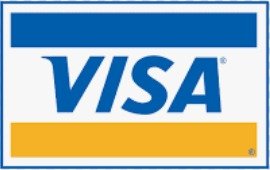Egypt is one of those places that captures the imagination. The pyramids, the Nile, ancient temples, and the vibrant Red Sea coast — it’s a destination full of wonder. However, if you’re planning a trip, one question that probably comes to mind is: Is Egypt safe to visit?
The short answer is yes, but like any country, there are things you should know before you go. In 2025 and looking ahead to 2026, Egypt continues to welcome millions of visitors from around the world. Most experience a safe and memorable holiday. Still, it’s smart to stay informed.
This guide will walk you through the facts. We’ll cover which regions are safest, what to watch out for, how to handle transportation, and where to turn if you need help. Whether you’re heading to Cairo, Hurghada, Luxor, or beyond, you’ll get the full picture so you can travel with confidence.
️ How Safe Is Egypt to Visit in 2025–2026?
Egypt is generally safe for tourists, especially in popular destinations like Cairo, Luxor, Aswan, Hurghada, EL Gouna and Sharm el-Sheik
. These areas are heavily visited, well-patrolled, and supported by dedicated tourist police. Millions of travelers come each year without issues.
That said, safety doesn’t mean you should let your guard down. Like any travel hotspot, Egypt has areas that are best avoided and others that are completely fine with basic precautions.
What Travel Advisories Say:
-
The UK Foreign Office considers Hurghada, Luxor, Aswan, and Cairo to be safe for travel.
-
U.S. State Department: Recommends avoiding North Sinai due to military activity, but considers main tourist routes acceptable with standard caution.
-
Germany & EU countries: Typically advise being aware of surroundings, especially in large cities, but support tourism to Egypt’s key destinations.
Regions That Are Considered Safe:
-
Red Sea Resorts: Hurghada, El Gouna, Makadi Bay, Marsa Alam
-
Cultural Cities: Luxor and Aswan
-
Capital Zones: Cairo’s downtown, Zamalek, and Giza
-
Tourist Sites: All major monuments and museums, which are patrolled and monitored
Areas to Be Cautious or Avoid:
-
North Sinai: Strictly off-limits for tourists due to ongoing military operations.
-
Western Desert border zones: Not dangerous for most tourists, but access is restricted.
-
Remote desert roads: Avoid unapproved excursions through isolated regions.
Quick Safety Tip:
If you’re not sure whether a destination in Egypt is safe, check your country’s official travel advisory and always book with a licensed tour operator. The difference in local knowledge and protection is huge. Or you can book your favorite trips through us

Transportation & Getting Around Safely in Egypt
Getting around Egypt can be part of the adventure — but knowing your options helps you stay both safe and stress-free. Whether you’re catching a ride across Cairo or heading south to Luxor, a little planning goes a long way.
Taxis & Ride-Sharing
In cities like Cairo and Hurghada, taxis are everywhere. But they don’t always use meters, and some drivers may overcharge tourists.
-
Tip: Use ride-sharing apps like Uber (Cairo, Alexandria) . They’re more reliable, and you’ll know the price up front.
-
If you take a street taxi, agree on a fare before getting in, and have small bills ready.
Buses & Trains
Egypt’s trains are a scenic and affordable way to travel between Cairo, Luxor, and Aswan. Buses connect major cities and resorts, and some are surprisingly comfortable.
-
Go with reputable companies like Go Bus or Blue Bus.
Domestic Flights
Flying within Egypt is quick, safe, and often inexpensive. You can hop from Cairo to Hurghada or Luxor in under an hour.
-
Book in advance if you’re traveling during peak season (December–April).
- Major airlines include EgyptAir and Air Cairo.
- Luxor Day Tour from Cairo by Flight – Explore Ancient Egypt in a Day
- Luxor Day Tour by Plane from Hurghada – Discover Ancient Temples
️ Tour Vehicles & Desert Transport
Heading into the desert or on an excursion? Always book through a licensed travel agency or your hotel concierge. Egypt’s desert roads aren’t made for casual driving, and breakdowns in remote areas can be dangerous.
-
Avoid independent drivers for long distances unless they are well-reviewed or recommended.
-
Always let someone know your plans if you’re going off the beaten path.
Quick Tip: Stick to well-known providers for all types of transport. Random deals on the street might save you a few dollars, but they can also create problems — from scams to breakdowns.

Cultural Safety & Etiquette
Understanding Egyptian customs isn’t just respectful — it’s also a big part of staying safe and feeling welcome. Most issues travelers face in Egypt aren’t about crime, but about cultur. Fort
Dress Modestly (Especially Outside Resorts)
Egypt is a predominantly Muslim country. While tourist resorts like Hurghada or Sharm El Sheikh are relaxed, cities like Cairo or Luxor are more traditional.
-
Women should consider wearing tops that cover shoulders and avoid very short skirts or shorts.
-
Men should avoid going shirtless outside the beach.
Quick Tip: In mosques or historic sites, everyone (men and women) should dress conservatively. Women may be asked to cover their hair.
Be Mindful with Photos
Always ask before taking photos of people — especially women or uniformed officers. Some areas (like bridges, embassies, or checkpoints) are off-limits for photography.
-
When in doubt, ask politely: “Momkin akhud sura?” (May I take a photo?)
Public Behavior
Displays of affection (like kissing) in public aren’t common and can attract unwanted attention. Loud arguments or public criticism of religion or politics should also be avoided.
-
Don’t talk about local politics, and avoid jokes about religion — even if well-meaning.
-
A smile and politeness go a long way.
Solo Female Travelers
Egypt is safe for women — but female travelers may receive attention from men, especially in non-tourist areas.
-
Walk confidently, avoid isolated streets after dark, and ignore catcalls.
-
Many women feel safer using Uber instead of taxis.
-
Carry a scarf — it can help in religious areas and also acts as a social buffer.
Respecting the culture helps you blend in and feel more secure. Most Egyptians are warm and welcoming — and a little cultural awareness will be greatly appreciated.
Common Scams & How to Avoid Them in Egypt
Egypt is generally safe, but like any tourist destination, it has its share of scams. The goal isn’t to scare you — just to help you spot trouble before it starts. A little awareness goes a long way.
The “Free Camel Ride” Trick
You’ll hear, “It’s free — just sit for a photo!” But once you’re up on the camel, the handler may demand money to let you down.
Avoid it: Always agree on the price before touching the camel or taking photos. Never accept a “free” ride.
️ The “Fake Guide” or “Official Helper”
At popular sites like the Pyramids or temples, someone might approach you acting like a security guard or employee. They’ll offer a “private tour” or help, then ask for a tip or fee at the end.
Avoid it: Only follow guides booked in advance or those clearly wearing licensed badges. A friendly “La shukran” (No thank you) works well.
Currency Confusion
Some vendors might give incorrect change — or pretend to confuse a 50-pound note with a 5-pound one.
Avoid it: Count your change in front of the vendor and familiarize yourself with local bills before you go shopping.
️ Overpriced Souvenirs or Pushy Sales Tactics
At markets (souks), prices are often inflated for tourists. Some vendors may be aggressive or guilt you into buying.
Avoid it: Bargaining is expected, so don’t be shy. If you’re uncomfortable, just smile, say “La shukran,” and walk away.
“Broken Meter” Taxi Drivers
A classic. A driver tells you the meter is broken and charges an inflated flat rate.
Avoid it: Use Uber whenever possible. If you take a regular taxi, agree on a price before you start the ride.
Tip for Peace of Mind:
Book transportation, tours, and even souvenir stops through your hotel or a known company. It removes the guesswork — and the pressure.
Book Now: Explore Hurghada Tours 2025
Health & Medical Safety: What Travelers Should Know
You don’t need to worry too much about health risks in Egypt, but it’s smart to be prepared. With a few simple habits and some local knowledge, you can enjoy your trip feeling healthy and stress-free.
Water & Food Safety
-
Tap water isn’t safe to drink — always choose bottled water, even when brushing your teeth.
-
Street food can be delicious, but stick to busy vendors where the food is hot and freshly made.
-
Wash fruit or peel it yourself, and avoid uncooked salads in lower-end places.
Medical Services & Pharmacies
Egypt has many modern clinics and pharmacies, especially in cities like Cairo, Hurghada, and Sharm El Sheikh.
-
Private hospitals and international clinics are available for tourists and offer good care.
-
Pharmacies are everywhere, and most carry both Western and Egyptian brands. Pharmacists often speak English.
Vaccinations
There are no mandatory vaccines to enter Egypt, but these are recommended:
-
Hepatitis A
-
Typhoid
-
Tetanus (up to date)
-
COVID-19 (proof may still be required for certain arrivals)
Ask your doctor 4–6 weeks before your trip.
Travel Insurance
Don’t travel without it. Medical care is affordable in Egypt, but emergencies or air evacuations can be expensive.
-
Choose a plan that includes medical coverage and emergency evacuation.
-
Carry a digital and printed copy of your policy, including the emergency hotline.
Quick Tip: Pack a small kit with essentials — rehydration salts, antihistamines, band-aids, and any prescription meds. Pharmacies are reliable, but having your basics with you can save time and stress.
Emergency Services, Tourist Police & What to Do If You Need Help
Egypt takes the safety of its visitors seriously. Most tourist hotspots have police presence and emergency services in place. Still, it helps to know what to do — and who to call — if something goes wrong.
Tourist Police: Your First Line of Help
Egypt has a special branch of police dedicated to helping travelers. You’ll find them at airports, popular tourist sites, and hotel areas.
-
They often speak English and are trained to handle issues involving foreigners.
-
If you’re ever in trouble or feel unsafe, approach them directly.
Tip: Don’t hesitate to ask for help — even for small things like lost belongings or unfair taxi fares.
Emergency Numbers in Egypt
Here are the key contacts you might need:
-
Police (general): 122
-
Tourist Police (dedicated): 126
-
Ambulance: 123
-
Fire: 180
-
Ministry of Tourism Hotline: 19654
It’s a good idea to save these in your phone before your trip, along with your embassy’s contact info.
Hotel Assistance
Hotels and resorts are usually very helpful with tourist issues. Many have 24/7 staff who can:
-
Call a doctor
-
Contact local police
-
Help translate if needed
If anything happens, let your hotel know first — especially for things like missing passports or excursion issues.
Stay Connected
Always keep your phone charged and carry a local SIM card or an international plan. In an emergency, quick communication makes a big difference.
Remember: Emergencies are rare, and Egypt’s support systems for tourists are strong. Knowing the basics gives you peace of mind and helps you handle anything with confidence.
Where Is It Safe to Travel in Egypt (and Where to Be Cautious)?
Egypt is a vast and diverse country. While some areas are restricted, the majority of the country — especially the places you’re most likely to visit — is considered very safe for travelers.
Here’s a clear breakdown:
Safe and Best Places to Visit in Egypt 2025
These areas are well-developed, welcoming, and have a strong safety record for tourists:
-
Cairo – Egypt’s energetic capital is packed with culture, history, and hospitality. Stick to areas like Zamalek, Giza, Downtown, and Heliopolis.
-
Alexandria – A historic Mediterranean gem. Known for its sea views, libraries, and laid-back atmosphere. Safe and relaxed, especially along the Corniche and Stanley Bay.
-
North Coast (El Alamein, Sidi Abdel Rahman, Marsa Matrouh) – Extremely popular with both locals and foreigners during summer. Gated resorts, clean beaches, and good infrastructure make this stretch one of Egypt’s safest holiday regions.
-
Luxor & Aswan – Serene Nile-side cities steeped in ancient history. Very safe, ideal for temple-hopping and river cruises.
-
Hurghada, El Gouna, Makadi Bay – Well-guarded beach resorts known for their diving, snorkeling, and family-friendly amenities.
-
Sharm El Sheikh & Dahab – Red Sea favorites among Europeans and divers. Strong tourist security presence.
Areas to Visit with Caution
These destinations are generally safe but may require more awareness:
-
Old Cairo – Amazing for exploration and photography. Be mindful of your belongings in busy markets.
-
Remote desert oases (Bahariya, Siwa) – Peaceful and beautiful, but extremely remote. Always go with a licensed tour operator and avoid independent travel.
Areas to Avoid (As of 2025–2026)
-
North Sinai – This area remains under military operations and is completely off-limits to tourists. Do not attempt to travel here.
-
Western border zones near Libya – These areas are restricted and not safe for travel.
Quick Tip:
Resorts, coastal towns, and heritage sites in Egypt are not just beautiful — they’re also safe and welcoming, especially when traveling with awareness and through trusted channels.
Conclusion: Is Egypt Safe to Visit in 2025–2026?
Yes — Egypt is safe to visit in 2025 and into 2026, especially in the country’s most popular destinations. From Cairo’s vibrant streets to the temples of Luxor, the beaches of Hurghada, and the laid-back North Coast, millions of travelers are enjoying unforgettable holidays here every year.
Of course, like any international trip, safety comes down to awareness, preparation, and respect for local customs. By sticking to well-known destinations, booking tours and transport through trusted providers, and being mindful of cultural norms, your experience will not only be safe — it will be one of the most rewarding journeys of your life.
Final Safety Tips for Your Trip to Egypt
-
Save emergency numbers before you go.
-
Use Uber, Careem, or hotel-arranged taxis to avoid overcharging.
-
Drink bottled water and avoid ice in street beverages.
-
Solo travelers (especially women): Walk confidently, dress modestly, and use hotel-recommended tours.
-
Respect the culture — this makes your trip smoother and more enjoyable.
-
Get travel insurance that covers medical and cancellations.
FAQ
Q1: Is Egypt safe to visit in 2025 for solo female travelers?
Yes, Egypt is generally safe for solo female travelers, especially in tourist areas like Hurghada, Cairo, and Luxor. Dressing modestly, avoiding isolated areas at night, and using hotel-recommended tours or Uber/Careem are highly advised.
Q2: What areas should tourists avoid in Egypt in 2025–2026?
Avoid North Sinai and border areas near Libya due to ongoing military operations. Also, refrain from traveling alone in remote deserts without a licensed guide.
Q3: Is Cairo safe for tourists in 2025?
Yes, Cairo is safe if you stay in areas like Zamalek, Downtown, and Giza. Be cautious in crowded places, watch your belongings, and use trusted transport options.
Q4: Are Red Sea resorts like Hurghada and Sharm El Sheikh safe?
Absolutely. These areas are highly secured and cater to international tourism. Hurghada and Sharm El Sheikh have a strong tourist police presence and excellent infrastructure.
Q5: Do I need travel insurance for Egypt?
Yes, travel insurance is essential. It should include emergency medical coverage, trip cancellation, and evacuation support for maximum peace of mind.
Q6: Is Egypt safe now despite political tensions or past incidents?
As of 2025, Egypt is stable in all major tourist areas. Like any country, occasional incidents may occur, but with awareness and preparation, travel is very safe.
Egypt is more than safe — it’s magical.
With smart planning and a respectful mindset, you can explore its ancient wonders, modern cities, and serene coastlines with total peace of mind.
Book Now: Explore Hurghada Tours 2025






